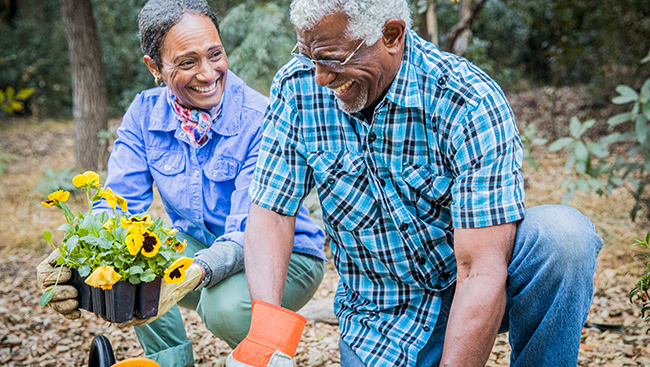Nature has a huge impact on health and wellness.
Good health is more than just the absence of illnesses or diseases; it’s about the presence of positive emotions, a sense of happiness, and quality of life. Nature has a huge impact on health and wellness. And the added bonus of visual appeal is just what makes gardening the perfect pastime. As an abundance of scientific research suggests, the benefits of gardening are more than just providing you with fresh produce and making your yard look nice.
Caring for plants has many surprising health benefits as well. If you aren’t sure of where to get started, there are many gardening guides available online and in stores to help you build your dream garden. Enjoy everything that nature has to offer without leaving the comfort of your home. So whether you have a small patio planter, a backyard vegetable garden, or a plot in a community garden, embrace your green thumb and start gardening today!

Gardening helps burn calories
Gardening is considered a moderate-intensity exercise and is a great way to stay fit and healthy while enjoying fresh air. It’s great for people of all ages and provides the opportunity for a full body workout while doing something fun. You can burn about 330 calories by gardening for one hour- more than walking at a moderate pace for the same amount of time.
Provides Vitamin D
Sunlight prompts your body to make Vitamin D, which helps reduce risk of heart disease, osteoporosis, and various cancers. The vitamin also bolsters your immune system, results in healthy lungs, and increases calcium in your body. Expose your limbs to sunlight for about 10 minutes a day. If you plan on spending more than a few minutes, make sure to apply sunscreen in order to lower your risk of skin cancer.

Lowers blood pressure and reduces risk of heart disease
30 mins of moderate physical activity a day can prevent and control high blood pressure. Regular gardening also cuts stroke and heart attack risk by up to 30% and prolongs life expectancy. This comes from the combination of physical activity and stress reduction gardening provides.
Hand strength and dexterity
Hand strength, flexibility and coordination are important for everyday tasks. As we age, diminishing hand strength and dexterity can prove to be quite a problem for some people. Gardening keeps hand muscles vigorous and agile and helps rebuild strength and ability for stroke patients.
Exposure to fresh air
Fresh air has countless proven benefits, such as strengthening your immune system, cleaning your lungs, improving blood pressure and heart rate, and helping digest food more effectively.




